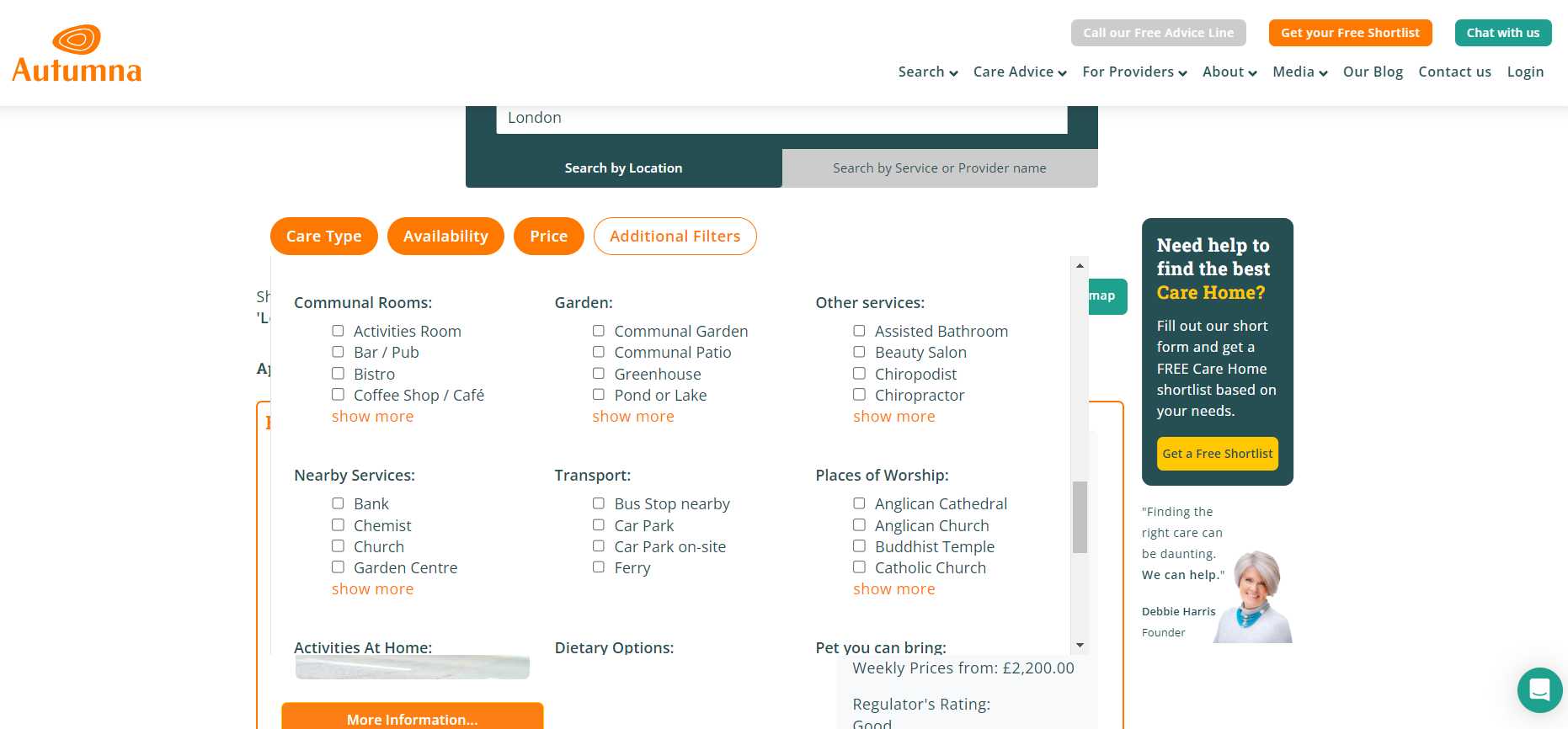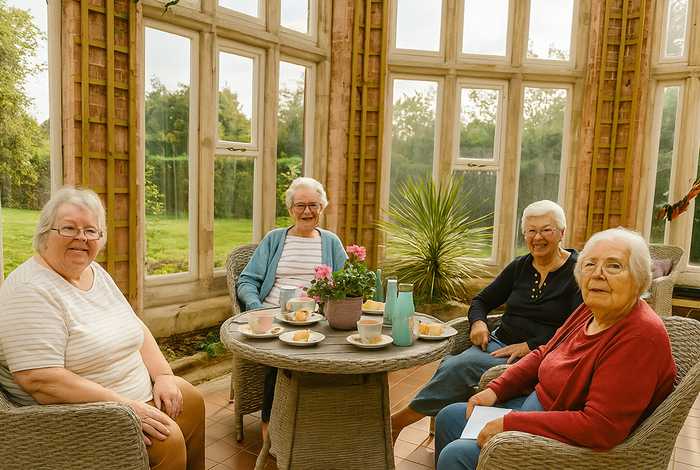Posted by Janine Griffiths
How to get an elderly person into a care home

Getting your loved one into a care home can feel like a daunting process.
After all, it is a significant change for the entire family, and there may be a lot of different emotions and even some resistance to the idea.
This is why it is important to work with your loved one and take the time to understand their fears and perspectives in order to address their concerns.
The more they are involved in the decision-making, the smoother the entire process can become.
In this blog, we discuss everything you need to know about how to get an elderly person into a care home that is right for them.
When you should consider getting a loved one into care
The first thing you will need to do is assess their care needs so you can determine whether a care home is needed in the first place.
One way to do this is to get a free care needs assessment from your local authority, to get a professional evaluation of what your loved one’s needs are.
As part of this assessment, someone from the local authority, such as an occupational therapist or social worker will assess how well your loved one is managing everyday tasks like dressing, cooking or washing.
This will make it easier to determine what care services and support are needed for your loved one. To get a needs assessment, you will need to contact social services at your local council.
Generally speaking, if your loved one finds it challenging to live alone at home and has a health condition that requires extra assistance, then it may be time to consider getting additional support.
In some cases, it may be possible to get help from carers and relatives, or make adaptations to their home to make it safer for them to live in. However, if none of these options are suitable or your loved one is still finding it challenging to retain their independence, then a care home may be the answer.
Different types of care home
One of the other things you may want to consider when evaluating how to get an elderly person into a care home is the type of care home that is needed. There are three main types, which all have a slightly different focus.
These are:
Residential care homes - these are purpose built accommodations for elderly people who need a moderate amount of personal care. At these facilities, staff can help with things like washing, dressing, bathing, medication, cooking, cleaning and more.
Nursing home - this type of care home offers round-the-clock nursing care for residents as well as personal care.
Care homes with dementia specialism - these type of care homes cater to elderly people with dementia. They may also have specially adapted facilities that are designed for people with the condition.
For more information about the different types of care home, check out our website.
Knowing the differences between these types of care homes makes it much easier to determine which type of facility would work best for your loved one.
Reasons why they may not want to go into a care home
It can be very difficult to know how to get an elderly person into a care home if they strongly object to it.
There may be a few reasons why your loved one may resist the idea.
Sometimes going into a care home can be perceived as a loss of independence, especially if they are used to being in their own home, in familiar surroundings.
However, it is important to note that where possible, care homes will encourage residents to be as independent as they are able to be.
Alternatively, it may be difficult for your loved one to get used to a new routine and unfamiliar faces. This combined with the fear of the unknown can cause some elderly people to be resistant to the idea of going into a residential facility.
They may also be concerned about a loss of freedom or become offended at the mere suggestion that they are not as capable of looking after themselves, even if they are experiencing challenges.
Our video below addresses some of the common concerns people have when going into a care home. Understanding these typical worries can help you better reassure your loved one.
How to approach the subject
Knowing how to get an elderly person into a care home requires a certain amount of understanding and persuasion in order to overcome potential objections.
Even if a care needs assessment shows that an elderly person is struggling to manage their day-to-day lives, they cannot be forced into a care home unless they are cognitively impaired.
So, it is important to work together with them and avoid giving them the impression that you are ganging up on them or that the decision has already been made without their input.
Instead, find a quiet time and place when you think they will be more receptive. Start by discussing the things they do really well before highlighting the things they are not so good at. Explain that their challenges are likely to increase as time goes on. Get them actively involved in the decision-making process and talk to them about your concerns.
When speaking to your loved one about care homes, be sure to use positive language and highlight the benefits of living there. This could include amenities such as a cinema room, beautiful gardens or other facilities they may enjoy. Alternatively, you could also emphasise the range of activities offered, the high quality of care or the friends they will potentially meet.
It is also a good idea to take them with you to visit some of the care homes in question, so that they have an opportunity to address any perceived fears or doubts. Giving them some autonomy over the choice of care home can also make them feel more in control and involved in the process.
How to find the right care home
In this blog, we have discussed how to get an elderly person into a care home, but you may be wondering how to find a suitable facility in the first place.
With so many options available, the process of identifying the right facility can seem overwhelming. Thankfully, Autumna has made this process much easier for care seekers.
Once you have an idea of your loved one’s care needs and preferences, the next step is to find a list of care homes that cater to those requirements.
Autumna makes it easy to find suitable care homes within minutes thanks to our online directory. All you have to do is type in your preferred location. Then you can filter the results further by the type of care you need, availability and price. You also have the option of selecting additional filters, which allows you to choose from a wide range of criteria and personal preferences.

How to get an elderly person into a care home: planning the move
When a suitable care home has been discovered, the next step is to plan the move. This will include organising your loved one’s financial and legal documentation and affairs. As part of this process, you will need to help them to arrange what can be taken into a care home and what to leave behind.
This is another reason it is good for both yourself and your loved one to visit the care home in question first, so you both have a good idea of what can be taken.
For more information on other preparations you need to make before your loved one moves into a care home, check out our blog, ‘Who to inform when moving into a care home.’
Autumna has also partnered with the Senior Move Partnership which provides specialist support for older adults who have or are moving into Care and Nursing Homes. Visit our website for more information.
Need more help in finding the right home?
For more personalised information, simply fill out a simple questionnaire and Autumna will send you a list of suitable care homes on your behalf.
You can also get in touch with our friendly advice team directly by calling 01892 335 330.
Receive a Free Care Home Shortlist!
Let our expert team of advisers get your search off to a great start.
Tell us a little about your needs and we'll send you a bespoke shortlist of care homes! Click the button below to begin, it takes just a few minutes.
Other articles to read
From the blog

Older Persons Care Advice
How to find a live in carer
October 15th, 2025
Discover how to find a live in carer who’s skilled, trustworthy and compatible, with practical tips on choosing the right support for your needs.

Older Persons Care Advice
Top day centres for the elderly in Kent
October 10th, 2025
Discover top day centres for the elderly in Kent offering companionship, activities, and flexible support to help loved ones stay active and fulfilled.

Older Persons Care Advice
Guide to retirement homes in Surrey
October 7th, 2025
Discover the best retirement homes in Surrey. Explore luxury living, wellness facilities, and supportive communities for a fulfilling later life.






